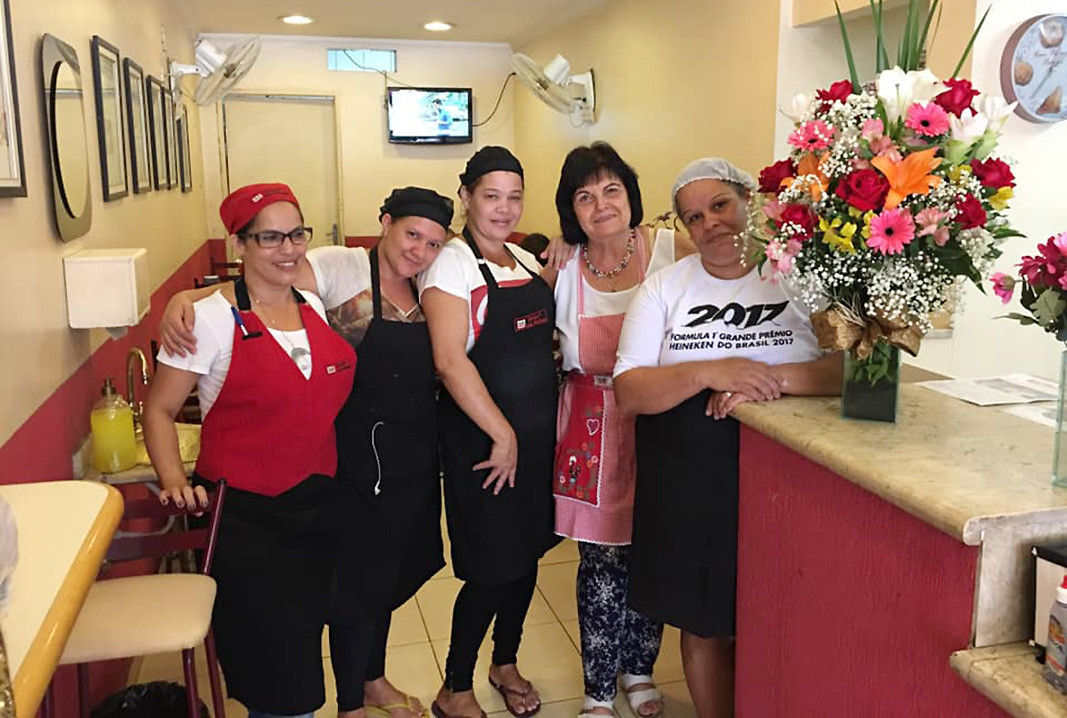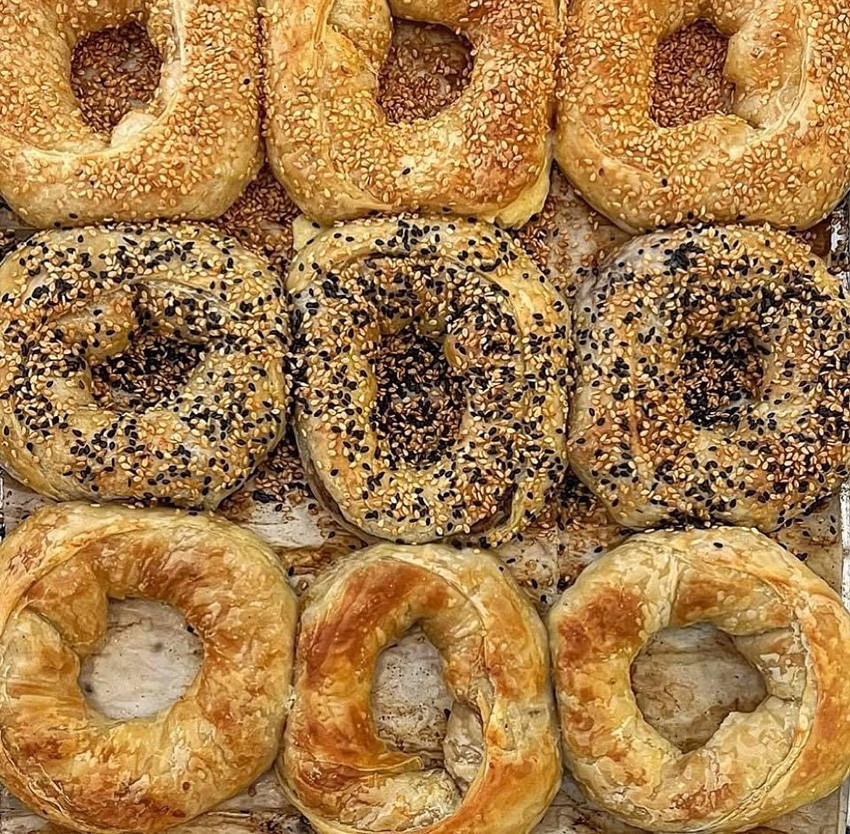Casa Bulgara or Bulgaria House is a top-notch eatery on the gastronomic guides of Sao Paulo – the biggest city in Brazil with a population of more than 12 million. The snack bar has existed for close to half a century at the same address, and is owned by 75-year old Shoshana Baruch, a Jewish lady of Bulgarian origin. Her family moved to Tel Aviv after World War II, and later – to Sao Paulo.
In 1975, Shoshana’s mother opened an ice cream, Bulgarian sirene (white brine cheese), yogurt and ayran shop, which she made herself. “We are Jews but at home we would speak Bulgaria and eat bureka for breakfast and for dinner – that is what we called it, in Bulgaria it is called banitsa. And the guests would say to my mother: “Why don’t you make bureka, it is so delicious.” So, she started selling bureka. And people liked it so much that the shop developed into a bureka snack bar,” Shoshana Baruch says in an interview with Radio Bulgaria: 
“The first burekas were only with cheese, or spinach and cheese, as it is in Bulgaria. But we have a colony of Jews here from countries like Poland, Romania, Russia and they are really fond of potatoes. So, we started selling burekas with potatoes, then with meat, aubergine and other kinds of filling. 
Mother started making Bulgarian cookies with apples and walnuts, and with apricot. We also sell Bulgarian sirene, ayran, and tarator, but as a kind of salad(similar to tzatziki – editorial note),”says Shoshana who speaks fluent Bulgarian.

It turns out Shoshana’s family are the only ones producing and selling Bulgarian sirene in the whole of Brazil, and Casa Bulgara is something of a Bulgarian cultural centre in the heart of the bustling metropolis. The restaurant is decorated with Bulgarian flags, dolls wearing traditional clothing and vials of rose oil, but also a painting depicting traditional Bulgarian scenes that is more than 100 years old. “Many people have wanted to buy it but I refuse to sell it,” Shoshana says.
Casa Bulgara got its name as a token of appreciation towards Bulgaria. “We are very thankful to Bulgarians, to Tsar Boris and to Dimitar Peshev and to all people who helped us survive during World War II,” Shoshana says and adds:
“50,000 Bulgarian Jews were rescued! Bulgaria is the only country in Europe to have rescued its Jews. That is history, and it makes me very sad that hardly anyone knows it! They know about Poland, about Russia, Romania, Hungary but so little is known about Bulgaria and how much it helped. During the war all Jews had to wear big yellow star-shaped badges to show they are Jewish. But Bulgarians had added a button on the star. I have photographs of mother and her star with a button, so it can be taken on and off, not like in other countries where the Jewish star was sewn onto the clothing.”
In Shoshana’s family memory, Bulgaria is a rescuer, but it is also the distant country where her late mother was born – the lady who created the Bulgaria House in the heart of Sao Paulo. Shoshana herself speaks very fluent Bulgarian:
“Mother took us to Bulgaria in 2007, so we can get to know it, so we could see where she lived in Sofia, where she was born, where they were deported, where in Shumen my grandmother lived. We all liked it there. We were all together, with the older grandchildren. And in 2017 she went back there again, this time with the younger grandchildren to show them their distant roots,” Shoshana Baruch says.
More:
Translated and posted by Milena Daynova
Photos courtesy of Shoshana Baruch
.
The Association of Bulgarian Schools in America invites children from the Bulgarian community in North America to participate in a competition dedicated to November 1 - National Awakeners' Day, the organization announced on its..
Robert Joseph Miller, Bulgaria’s Honorary Consul in Nevada, was awarded the prestigious “Golden Laurel Branch” of the Ministry of Foreign Affairs for his exceptional merits in maintaining the diplomatic relations between the US and Bulgaria. The award..
The cool autumn evenings give us a reason to immerse ourselves in the cosy atmosphere of restaurants in Sofia and try new flavours inspired by global culinary trends. Leading Italian travel platform praises Sofia in autumn..
"We cannot escape from modern technologies, but we must think about how we can use artificial intelligence to improve the quality of..
Over 80% of Bulgarians are expected to start using artificial intelligence in the next three years , across all age groups. Today, it is almost..
Serbians around the world mark one year after Novi Sad tragedy On November 1, Serbians abroad will join the call of..

+359 2 9336 661
